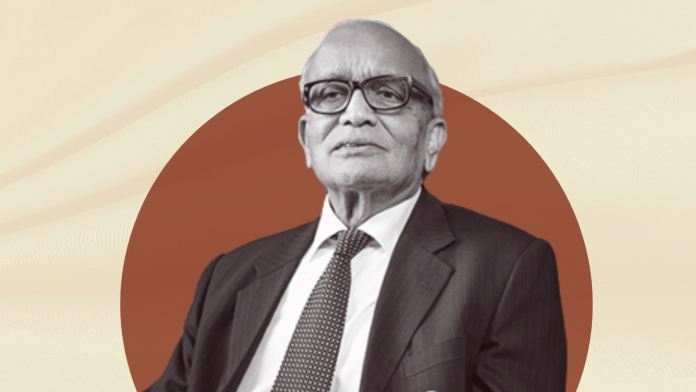New Delhi: Pitching for rationalisation of taxes for the automobile sector, R C Bhargava, chairman of the country’s largest automaker Maruti Suzuki, has said that the industry can’t grow when the tax rate on cars is 50 per cent.
Bhargava also noted that despite the Modi-government’s emphasis on reforms, manufacturing in India is still a laggard mainly due to failure of “implementation machinery” in the country.
“Throughout our history, all motor vehicles, whether it’s SUVs, MUVs or anything else… have been in the highest tax brackets. The taxes on motor vehicles in India have historically been among the highest in the world. All taxation on the motor industry should be rationalised. It should be treated like it is in the rest of the world,” Bhargava said at a press meet Monday evening.
He added: “How can the industry grow with a 50% tax rate on cars? But if it is the wisdom of the policy makers and the political leadership… If they don’t want the industry to grow and they are happy with a 5-6 percent growth.”
Currently, automobiles are taxed at 28 per cent GST with additional cess ranging from 1 to 22 per cent depending on the type of vehicle.
The auto industry veteran added that the Indian economy can grow higher than the 7 per cent growth forecast for FY23 if manufacturing in India can gather steam. “Unfortunately, manufacturing in India has still been a laggard. Mr Modi has given great emphasis on a whole lot of reforms… But for some reason, we are not able to make the progress we should be making,” he said.
Replying to a query on the slow pace of industrial growth, Bhargava underlined that there has been a huge gap between the desired intentions of policies implemented over the past 70 years and their results. He added that the intention behind the policies such as Make in India, Ease of Doing Business, GST and the Bankruptcy Law, was to make India an attractive competitive manufacturing destination. However, that has not happened because “the intention of the government is not getting translated into ground reality”.
Significance of implementing policy
Bhargava highlighted the need to implement policies and pointed out how a “good policy can become a bad policy” depending on its implementation.
“One of the things that we learnt from the Japanese was that it is better if your policy is not even the best, but if you implement it fully and correctly. A good policy can become a bad policy if it is not properly implemented. An average policy can still become a good policy if it is well implemented. And I think where we’ve been lacking all these years is in the implementational machinery in the country,” he said.
Stressing that he is a big supporter of the government, he noted that in some areas the best decisions are not taken because the political system is not given the correct information by the bureaucracy.
“In some areas, policies are not being done correctly because of incorrect advice being given or lack of understanding…I think in today’s complicated world of economic development, improving manufacturing and other areas, there is a great deal of requirement for real knowledge of the sector, of skill and knowledge what is happening. Without that, if you just look, Oh! Europe does this, so let’s do that. …But we are…in so many major respects, different from Europe,” he remarked.
Also read: How fuel prices become mysteriously stable just before elections. Here’s data since 2020






